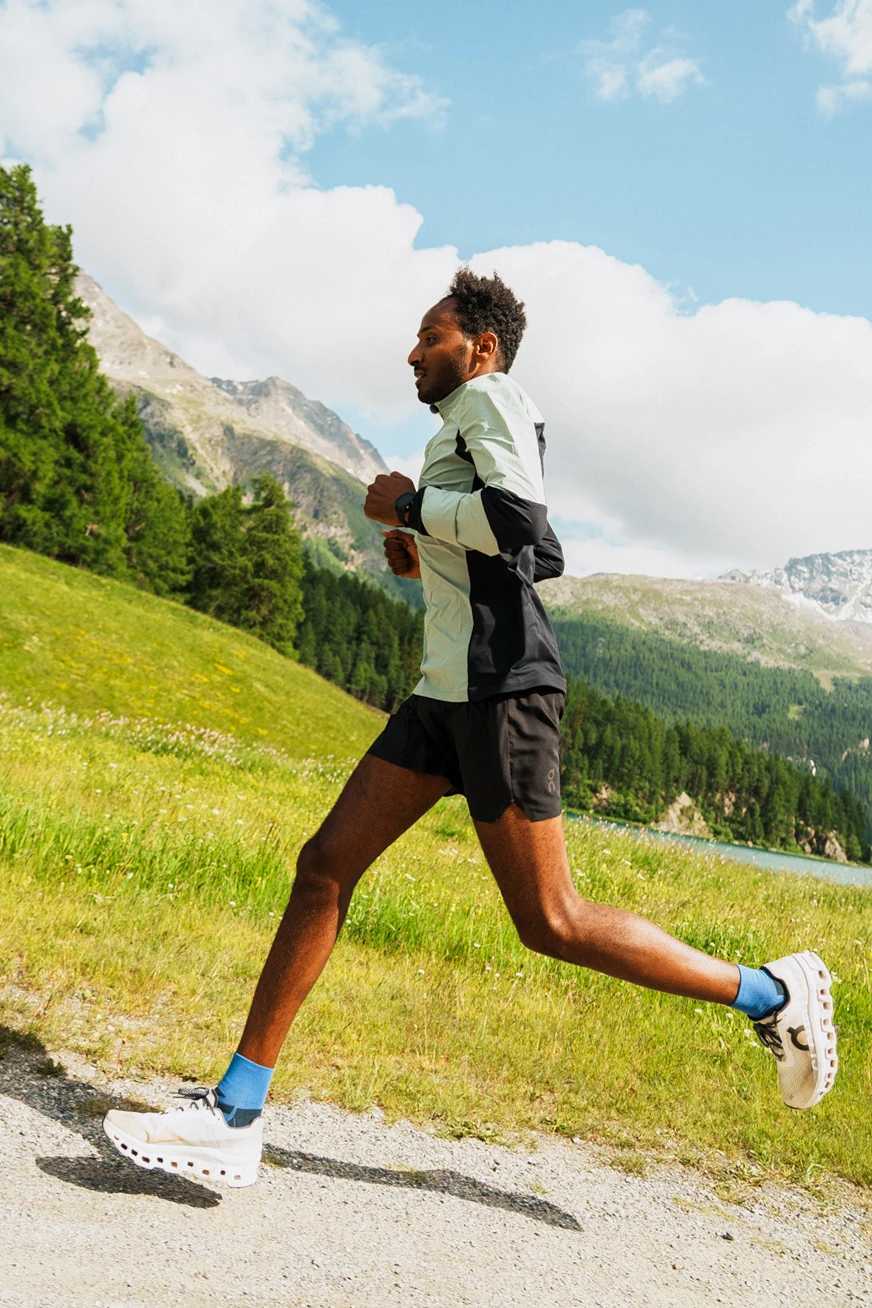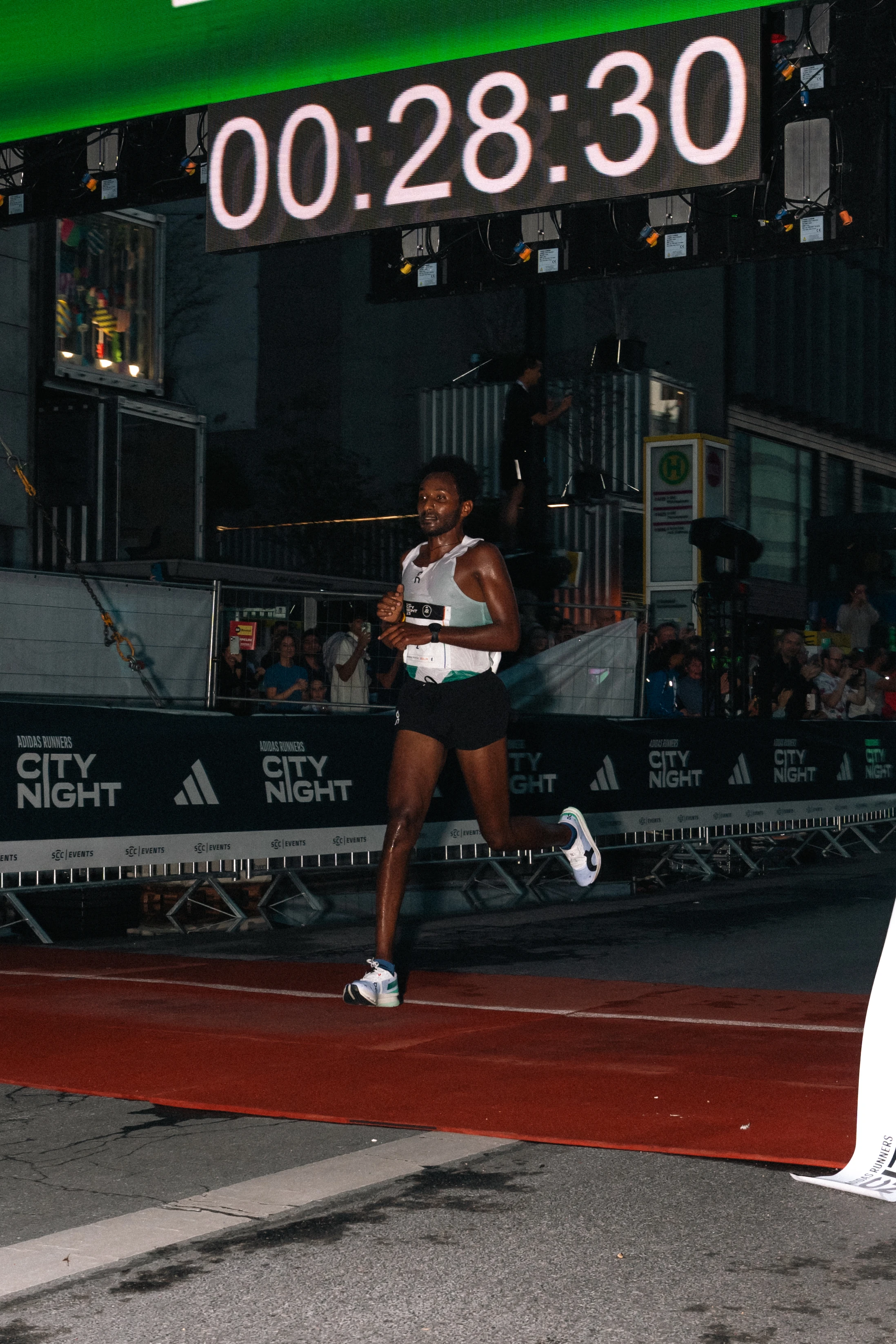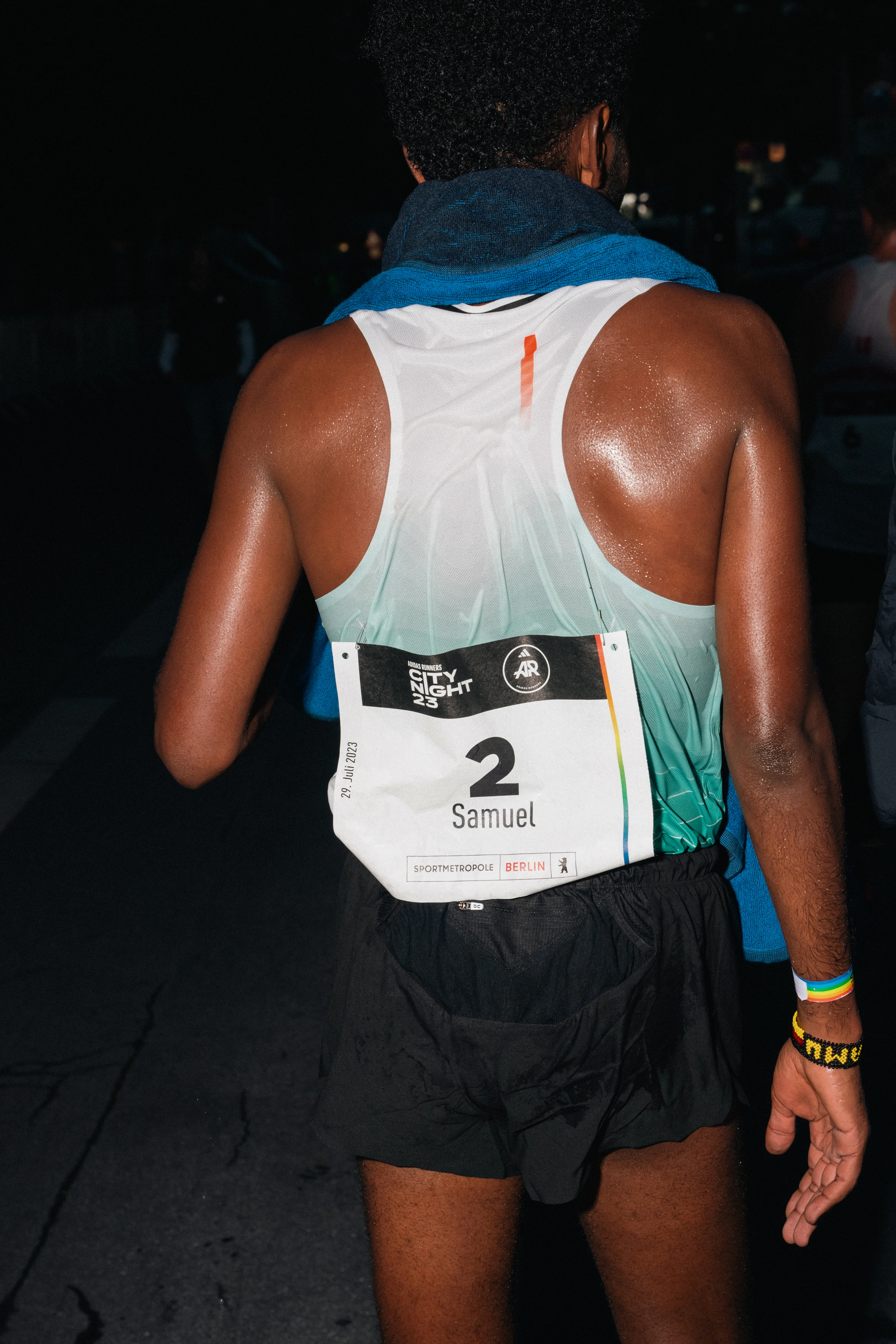Dear Echo: How running found Samuel Fitwi
Samuel Fitwi never dreamed of being a professional athlete. Today, he’s one of Europe’s fastest runners, ready for the biggest stage of all.
Words by Robert Birnbaum. Photography by Lea Kurth & Florian Kurrasch.
It’s February 2023 and spring has already arrived in Andalusia, Spain. Conditions are close to perfect for road racing. Around two hours and five minutes of hard running after they set out, the leaders at the Seville Marathon cross the finish line on the Paseo de las Delicias. The name of the famous street, which translates as “the walk of delights” is deliciously ironic today, given what the runners have endured. Seven minutes after the first runner broke the tape, an underwhelmed Samuel Fitwi arrives. His time of 2:12:14 isn’t slow. Far from it. Especially considering this was his first ever marathon race. It simply isn’t what he expected – or wanted. To reach his goal and compete for Germany at the Olympic Games in 2024, Samuel will have to shave off at least another four minutes. He knows the journey ahead won’t be easy. But compared with the challenges Samuel has overcome to be here, running four minutes faster seems like a mere formality.
Samuel Fitwi was born in Eritrea. Looking for a better life, he did something that would alter his trajectory forever. “I had never imagined I’d travel all the way through Sudan, Libya, crossing the Mediterranean Sea to Italy and eventually landing in Germany. The journey was hard and dangerous, I’m lucky to have made it safe and sane,” Samuel says.
With his only knowledge of Germany being from school history lessons, Samuel wasn’t sure what to expect. But after arriving in Trier, in Western Germany, close to the border with Luxembourg, he was genuinely surprised by how welcome he felt. Nevertheless, fitting in wasn’t easy at first. “I lived in a refugee camp and then moved to the Eifel region [around 70 km (43 miles) north of Trier], where I still live today. The first six months were incredibly hard. Not being able to speak the language, not being able to understand. In boarding school, I met a couple of people from Syria and Belarus, and we supported each other.
Mastering the complexities of German required not only the support of friends, but a remarkable 20 hours of lessons every week.
“Being here a bit longer than me, they [my friends] were able to help me learn quicker. After about a year in, things got easier for me, and I was able to hold normal conversations. Things really improved from there.”
Samuel became even more integrated in the German way of life when he became part of a foster family.
“They had their own kids and were already taking care of foster children when they offered me to join them on vacation. This was to see how well I would fit into the family and how we get along. We spent ten days on a tiny island in the North Sea and I immediately felt at home. I loved it and have stayed with the family ever since.”
Samuel had found a new home. Yet, his immense talent for running remained undiscovered. “At the end of the school year, our gym teacher had to grade our performance,” he remembers. “We did the so-called ‘Cooper Test’ to see how far you can run in 12 minutes. I ran almost four kilometers (2.49 miles) and my teacher immediately suggested I sign up to the local run club. The result was as surprising to Samuel as it was to his teacher. “Back in Eritrea, the only thing that could get me to run were hyenas!”
Samuel showed up at his first running training not knowing what to expect. “I had never run before. They made me warm up and then run 1,000 meters. It took me two minutes and fifty seconds.” Even for trained runners, that is a blistering pace. Samuel was just 20 years old and a complete beginner when he set that time. And he didn’t stop there. A month later, he competed in a local 10K race – finishing in 31 minutes. Two years later, he was racing as part of the German national team.
"Back in Eritrea, the only thing that could get me to run were hyenas!”
At the same time as he was discovering his running ability, Samuel started vocational training as a painter. It was something he enjoyed but, even though his employer allowed him to take days off work to train, the physical labor was clearly affecting his running. “Walking up a scaffolding with 15 liter buckets of paint in your hands isn’t easy. Combining training with work was tough. When I realized my potential as a runner, I decided to fully dedicate myself to that.”
Seven years on, Samuel is a three-time German Cross Country champion and holds the German record for 5K on road (13:33 minutes). Since then, he has worked his way up the disciplines, moving from middle distances up to 10K races and now, the half-marathon and marathon. As you’d expect, building that endurance, wasn’t easy.
“My first runs over 30k were super tough. My body took a long time to recover from that and I just wasn’t feeling great. But I’ve been able to train well, stay healthy for a long time now. I ran 38 kilometers (23 miles) the other day, and it went really well.”
So while his first Marathon fell short of his expectations, Samuel has his sights set on meeting them at the second attempt. “Berlin [on September 24, 2023] will be my second-ever marathon. I’m excited to compete in a race known for world records and superstar runners like Eliud Kipchoge. It’s just amazing to share the start line with so many fantastic runners.”
As he speaks, Samuel exudes an endearing mix of ambition and gratitude. “Had I stayed in Africa, I would have never met all these wonderful people, like my host family. I would have never started running. I’m so grateful for everything they have done for me. I’m glad I made the decision to come here.”
If Samuel’s star continues to rise, it’s likely he'll have more to be thankful for in the near future. “I want to qualify for the Olympic Games there [in Berlin]. The standard to make the German Olympic team is two hours, eight minutes. This is my target.”






